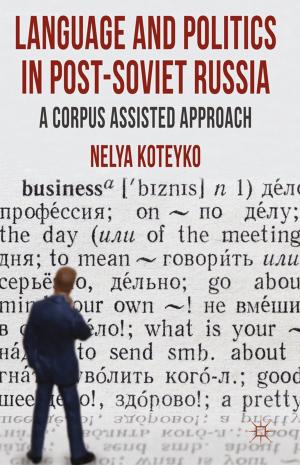Working-through Collective Wounds
Trauma, Denial, Recognition in the Brazilian Uprising
Nonfiction, Health & Well Being, Psychology, Personality, Psychotherapy| Author: | Raluca Soreanu | ISBN: | 9781137585233 |
| Publisher: | Palgrave Macmillan UK | Publication: | March 22, 2018 |
| Imprint: | Palgrave Macmillan | Language: | English |
| Author: | Raluca Soreanu |
| ISBN: | 9781137585233 |
| Publisher: | Palgrave Macmillan UK |
| Publication: | March 22, 2018 |
| Imprint: | Palgrave Macmillan |
| Language: | English |
*Working-through Collective Wounds *discusses how collectives mourn and create symbols. It challenges ideas of the irrational and destructive crowd, and examines how complicated scenes of working-through traumas take place in the streets and squares of cities, in times of protest. Drawing on insights from the trauma theory of psychoanalyst Sándor Ferenczi and his idea of the ‘confusion of tongues’, the book engages the confusions between different registers of the social that entrap people in the scene of trauma and bind them in alienation and submission. Raluca Soreanu proposes a trauma theory and a theory of recognition that start from a psychoanalytic understanding of fragmented psyches and trace the social life of psychic fragments. The book builds on psychosocial vignettes from the Brazilian uprising of 2013. It will be of great interest to psychoanalysts interested in collective phenomena, psychosocial studies scholars and social theorists working on theories of recognition and theories of trauma.
*Working-through Collective Wounds *discusses how collectives mourn and create symbols. It challenges ideas of the irrational and destructive crowd, and examines how complicated scenes of working-through traumas take place in the streets and squares of cities, in times of protest. Drawing on insights from the trauma theory of psychoanalyst Sándor Ferenczi and his idea of the ‘confusion of tongues’, the book engages the confusions between different registers of the social that entrap people in the scene of trauma and bind them in alienation and submission. Raluca Soreanu proposes a trauma theory and a theory of recognition that start from a psychoanalytic understanding of fragmented psyches and trace the social life of psychic fragments. The book builds on psychosocial vignettes from the Brazilian uprising of 2013. It will be of great interest to psychoanalysts interested in collective phenomena, psychosocial studies scholars and social theorists working on theories of recognition and theories of trauma.















